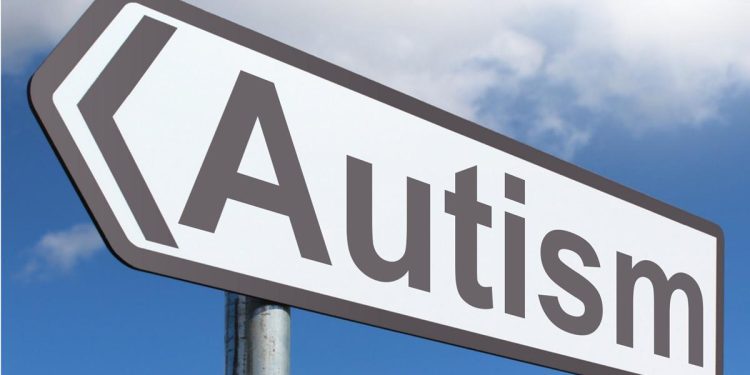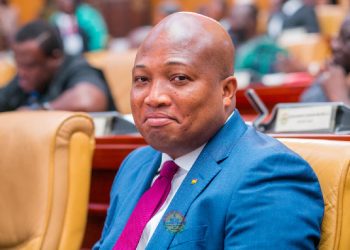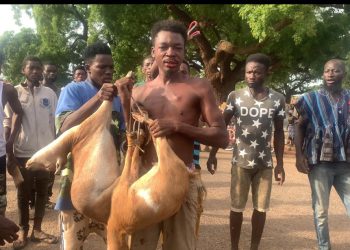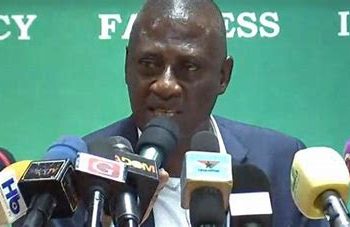Stakeholders have emphasised the need for early autism diagnosis awareness and specialised training for health workers to address autism-related concerns effectively.
Abeiku Grant, the Coordinator of the Autism Awareness Care Training Center (AACT) stressed the importance of government policies in enhancing the lives of autistic children.
“Autism is not a physical disability, it is something that the government is not looking at. Even though no policy by the government is talking about autism they don’t understand why they should support someone who is physically developed but still needs support. And that has been the biggest challenge.
Dr. Lawrence Ofori-Boadu, the Acting Director, of the Institutional Care Division of the Ghana Health Service, also emphasised the need for stakeholder engagement in supporting autism-related efforts.
“It is about dialogue and advocacy. Knowing the numbers and knowing who needs what. The laws are there for everybody but once we get to know the disadvantage we create special avenues for them. So I don’t think that it is too late yet maybe people were not aware then, so we need to engage. There are systems there, so we need to strengthen the systems.”
A midwife, Faustina Boamah underscored the need for more training for health workers to help them identify such cases.
“I think there should be more training for health workers or midwives and nurses to be able to identify such cases when they report and then as we are already doing with antenatal care we are educating them on danger signs and how they should care for themselves during pregnancy.”
Autism Spectrum Disorder (ASD) affects 38.7 percent of children under 14 in Ghana, significantly higher than the global prevalence of 6.2 percent.
Despite the increasing numbers, stigma persists, prompting concerns about the well-being of autistic children.
In Ghana, 380 out of 100,000 individuals have autism, with a total of 129,641 citizens on the spectrum in a population of 33 million, according to a World Bank report.
Among them are Marvin Atta Dennis and Edwin Atta Dennis, twins diagnosed with autism at three years old, now aged eighteen.
Their mother, Diana Ayivor, recounted their journey of discovering their children’s condition and the challenges they faced, including misattributing their difficulties to spiritual causes rather than autism.
“So, we were going from church to church, and we believed it was witchcraft and the pastors were confirming it till we went to the assessment centre, and they said that we should take them to a centre of autism. So, we took them, and they started schooling at age three. The journey has been very tough, and it is tougher now that their dad is not here anymore. When he was here it was quite easier. You know we were training them together. It has been tougher doing it alone. Because he was the only one helping me out”.
Diana expressed concerns about maintaining a balanced diet for her children.
She said, “It is quite challenging when you have children on the spectrum, and they don’t eat everything. One of them eats jollof rice and kenkey and waakye and the waakye you have to buy it outside. They can determine the difference.
“One eats bananas, one hates bananas. You fry egg for one you cook egg for the other. The one that likes kenkey, it is without stew or soup. He has never eaten soup or stew before. No stew, no soup. So, I give them normal vitamins to complement what they eat”.
She discussed accessing quality healthcare for her children, primarily relying on hospital visits for routine checkups or when they are unwell.
“Even when I read about some going for medication and therapy, I do feel for them. Mine don’t. We go for checkups once in a while. And they are fine. They don’t take anything liquid apart from water, I mean no minerals.
Despite improvements in education, Diana noted the discontinuation of her children’s schooling due to a decline in sponsorship, relying on her small provision shop as the family’s sole income source.
“We had to get sponsors to sponsor them till family members came in recently. I do get support from my family but still, it is not easy. Maybe you wake up in the morning and what you have in the house is yam but they don’t want it so how you will get the jollof and chicken is your business”.
Diana highlighted her sons’ talents, illustrating that disability does not equate to inability, with Edwin’s passion for art and Marvin’s interest in cooking.
She called on the government to establish affordable educational and healthcare facilities for autistic children to promote inclusive education and effective healthcare for the less privileged.
“Just like there are government schools and private schools I think there should be centres for the less privileged that cost less because when you take them to a normal hospital, and their behaviours sometimes it is serious. So, if we get an autism centre then we know that centre is for autism then we bring them directly to those places”.
Explore the world of impactful news with CitiNewsroom on WhatsApp!
Click on the link to join the Citi Newsroom channel for curated, meaningful stories tailored just for YOU: https://whatsapp.com/channel/0029VaCYzPRAYlUPudDDe53x
No spams, just the stories that truly matter! #StayInformed #CitiNewsroom #CNRDigital















